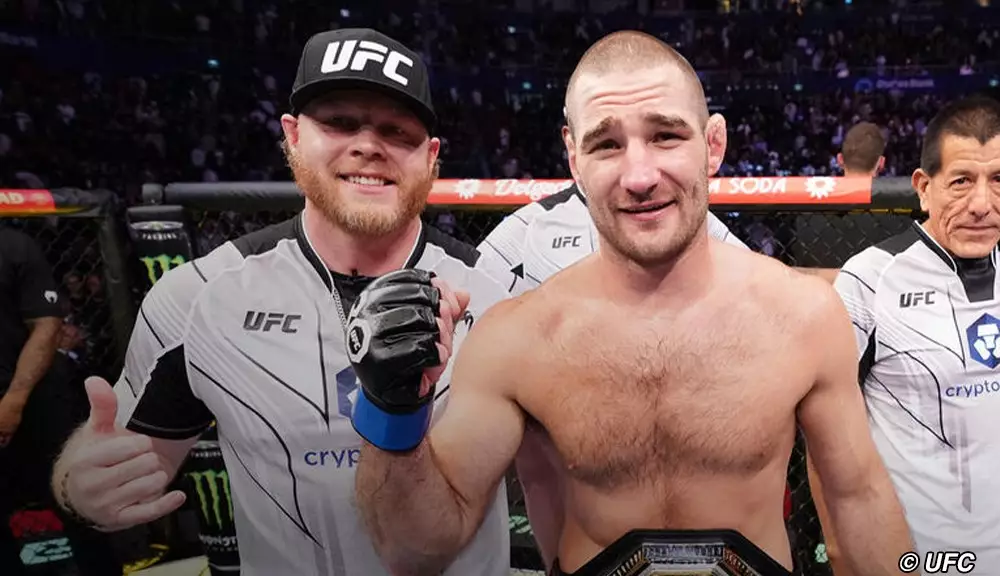In the world of mixed martial arts (MMA), the relationships between fighters and their coaches are intricate and often fraught with tension, particularly following disappointing performances. The recent UFC 312 event exposed the strain between Sean Strickland and his coach, Eric Nicksick, after Strickland suffered a dominant loss against Dricus Du Plessis. This fight highlighted two key issues: the expectations placed on fighters and the responsibility of coaches to manage these expectations effectively. Nicksick’s frustration was evident as he discussed Strickland’s lack of urgency in the octagon. For a coach who aspires to cultivate champions, witnessing a fighter’s defeat without the expected level of effort can be disheartening.
Daniel Cormier, an established name in the MMA world, has weighed in on the situation, providing a nuanced perspective. While he empathizes with Nicksick’s disappointment, he challenges the notion that coaching should be solely about preparing champions. Cormier contends that the reality of coaching entails nurturing a spectrum of talents, with many striving for success but not necessarily achieving it. This commentary raises an essential aspect of coaching—having high aspirations is critical, yet one’s approach must acknowledge the realities that not every fighter will ascend to championship status. This expectation may set mentors on a path toward dissatisfaction if they are not cautious in managing their aspirations alongside their athletes’ potential.
In a related twist, Strickland announced that he would no longer have Nicksick in his corner due to the fallout from their recent competition, even though they would maintain their friendship. This decision complicates the traditional coach-fighter relationship where trust is paramount. Cormier found this surprising given the severity of Nicksick’s criticism. His viewpoint, however, underscores an essential belief in accountability within coaching. If trainers do not critique their fighters’ performances honestly, they fail in their roles, not just as tacticians but as mentors.
The MMA coaching dynamic is not a one-way street; it requires mutual respect and honesty. A coach’s critique, especially when it pierces through the surface, can spark significant discomfort between athlete and mentor. Yet, it is within this discomfort that growth can occur. Cormier suggests that while lofty goals are vital, a coach’s methods must resonate with realistic outcomes, focusing on the long-term development of fighters—some of whom may not attain championship glory but can still grow as athletes and individuals.
Ultimately, Strickland and Nicksick’s relationship serves as a powerful reminder of the complexities involved in sportsmanship and mentorship. Both fighters and coaches must navigate their paths with flexibility, understanding that success manifests in various forms, not merely through titles. The true essence of coaching could lie in fostering resilience and character, essential traits for any athlete striving to make their mark in the competitive landscape of MMA.

